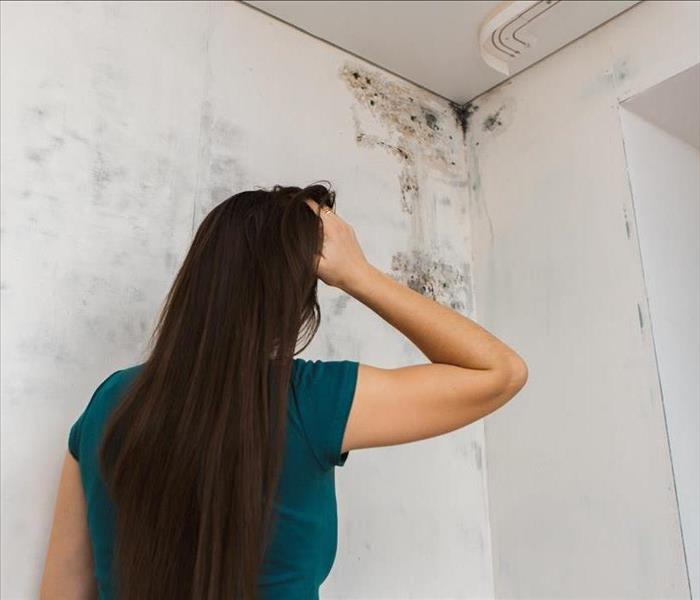Knowing When To Sue Over Black Mold Exposure
8/31/2020 (Permalink)
Adhere To The Following Four Points
As a building tenant, you have rights, and your landlord has legal responsibilities. However, while you may discover black mold in your rental space, legal action is not the appropriate first step. True, your landlord must maintain a habitable space, but some mold problems stem from unseen issues, like internal plumbing leaks. Therefore, understand and adhere to the following four points.
1. Violation of Habitability Warranty
A residential landlord must adhere to a habitability warranty, meaning that living spaces must meet federal and state codes for residential properties. Property neglect, leading to mold growth, directly violates this warranty. However, consider that a direct violation means the owner knowingly put you, the tenant, in harm's way. Did they? If not, give the landlord an opportunity to correct the issue.
2. Notification to Landlord
When notifying your landlord of the discovery of black mold, record the interaction, or ensure a record of the event. Notifying a landlord of the problem in writing is often the best way to inform because there is proof of the interaction. You can also use email or text messages, any form of communication that shows the date and time of the interaction.
Once a landlord receives notification, they should test the building and hire a mold remediation company in Billings, MT, to take care of the problem. If they do not fix the problem, then further action may be necessary.
3. Restitution for Damages
It is not uncommon for mold damage to result in property loss and other issues. Your landlord may be responsible for the damages. You can file a claim to receive restitution for property loss and medical expenses should any arise.
4. Execution of Legal Action
If your landlord is unresponsive, or if they refuse to correct the problem, then you have every right to file a personal injury lawsuit against them. While tenants and landlords should work amicably toward a solution, sometimes legal interference is necessary.
Every tenant has a right to live in a rental free of black mold. Contact your landlord and discuss mitigation possibilities before seeking legal action.




 24/7 Emergency Service
24/7 Emergency Service
